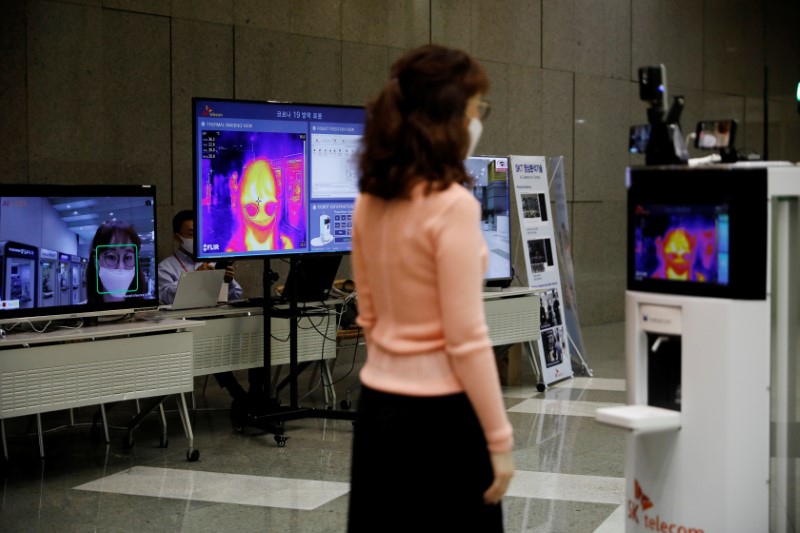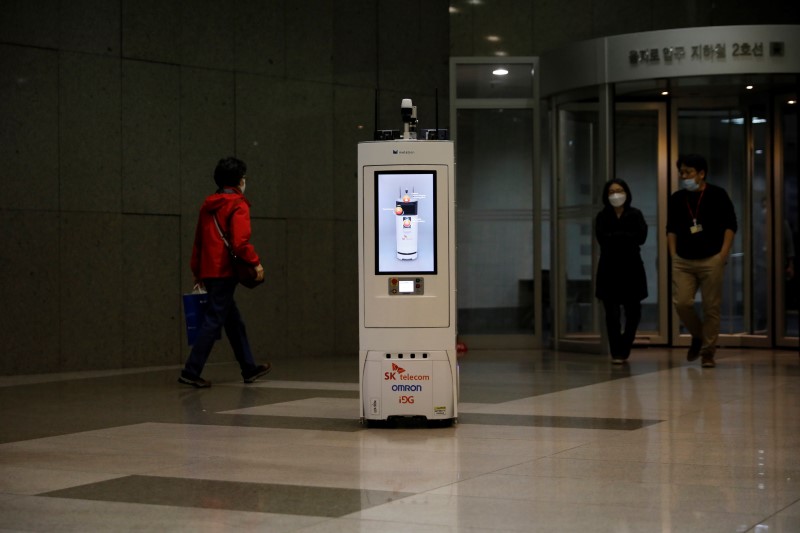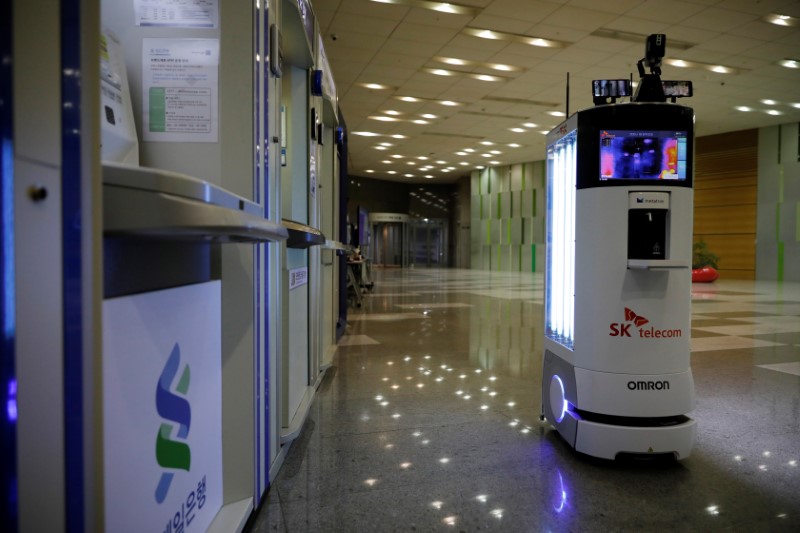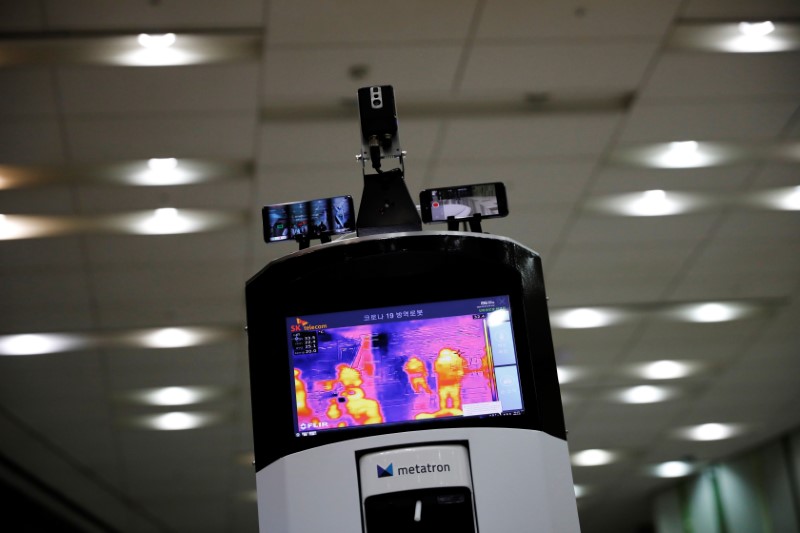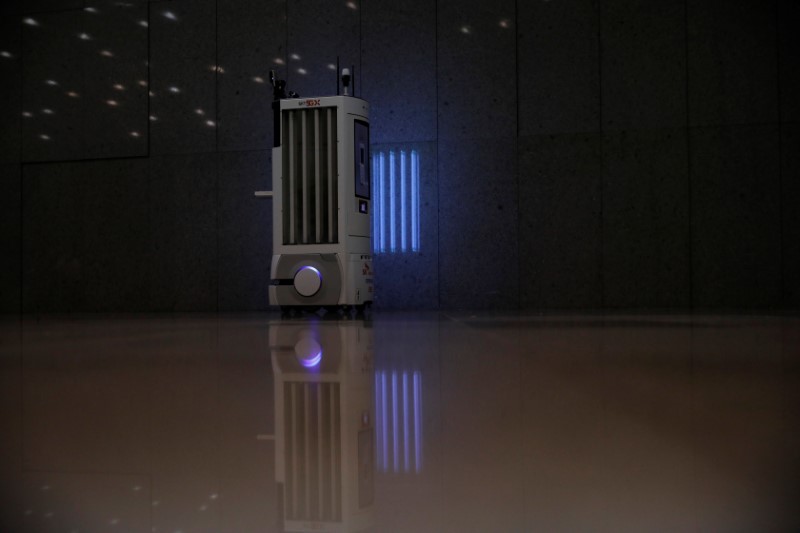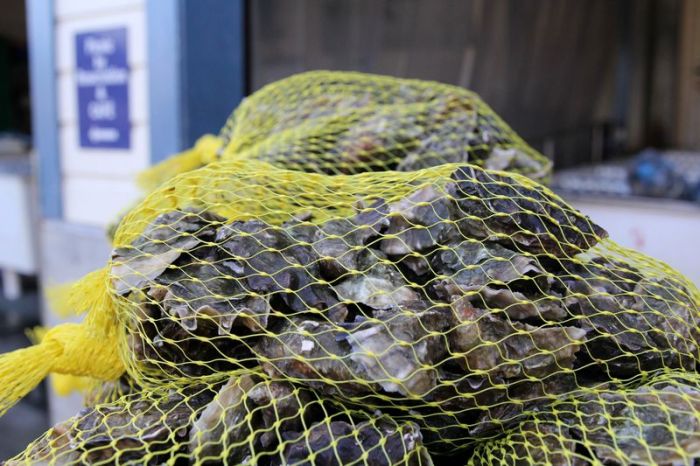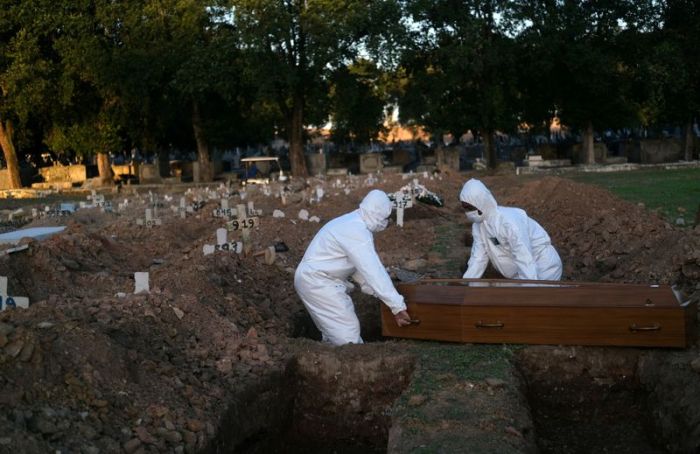SEOUL (Reuters) – A self-driving robot equipped with cameras and an LED screen greets visitors at the lobby in the headquarters of South Korea’s largest mobile operator, checking their temperature, dispensing hand sanitiser and disinfecting the floor.
“Please take part in social distancing,” the white robot firmly but politely reminds three SK Telecom employees who stand chatting nearby.
Corporate Korea has long been used robotics for tasks including manufacturing and cleaning, but the technology is getting a boost as more companies strive to reduce human contact amid coronavirus concerns.
Having largely managed to contain an epidemic that infected more than 11,000 and killed 269, South Korea is transitioning from intensive social distancing towards what the government calls “distancing in daily life”.
The robot, developed jointly by SK Telecom and Omron Electronics Korea, an industrial automation solution provider, transmits data to its server in real time, powered by the telecom company’s fifth-generation (5G) technology.
It sets off an alarm if anyone’s temperature is over 37.5 Celsius (99.5 Fahrenheit), while using artificial intelligence (AI) to detect gatherings and advise people to disperse. Those not wearing a mask will be reminded to put one on.
“The robot helps minimise people-to-people contact and reduce time that’s taken for temperature checks at the entrance, and the AI technology raises accuracy,” said Ra Kyhong-hwan, head of data business cooperation at SK Telecom and one of the developers.
Armed with ultraviolet lamps and two disinfectant sprayers, the robot can disinfect 99% of 33 square metres (355 square feet) of surface area in 10 minutes, the company said.
The developers added a function to hide faces mirrored in the screen to protect people’s privacy, Ra said.
“It felt a bit strange when I first saw the robot but I realise it can raise awareness about distancing and also improves accuracy in temperature checks,” said Lim Yeon-june, an employee of SK Telecom.
Smaller businesses and retailers are also eyeing robots.
At a café in the central city of Daejeon, a robot takes orders, makes 60 different types of drinks and brings them to customers at their seats.
At CJ CGV, South Korea’s largest multiplex cinema chain, moviegoers can buy tickets, popcorns and parking vouchers through robots, which can also guide them to their seats or the bathroom.
Last month, Woowa Brothers, the country’s top food delivery app owner, began a pilot operation for a self-driving delivery robot that can move freely between floors of an office or apartment building.
A customer can place an order through a QR code, and the robot, called Delitower, would pick up food from the restaurant or a delivery rider and bring it straight to the customer’s location.
“We’ve been testing delivery robots since last year and are seeking to adopt them at the offices, hotels and residential complexes as more people find robots to be useful amid the coronavirus outbreak and social distancing,” an official at Woowa Brothers told Reuters.
(Reporting by Hyonhee Shin; Additional reporting by Daewoung Kim, Dogyun Kim and Chaeyoun Won; Editing by Lincoln Feast.)

